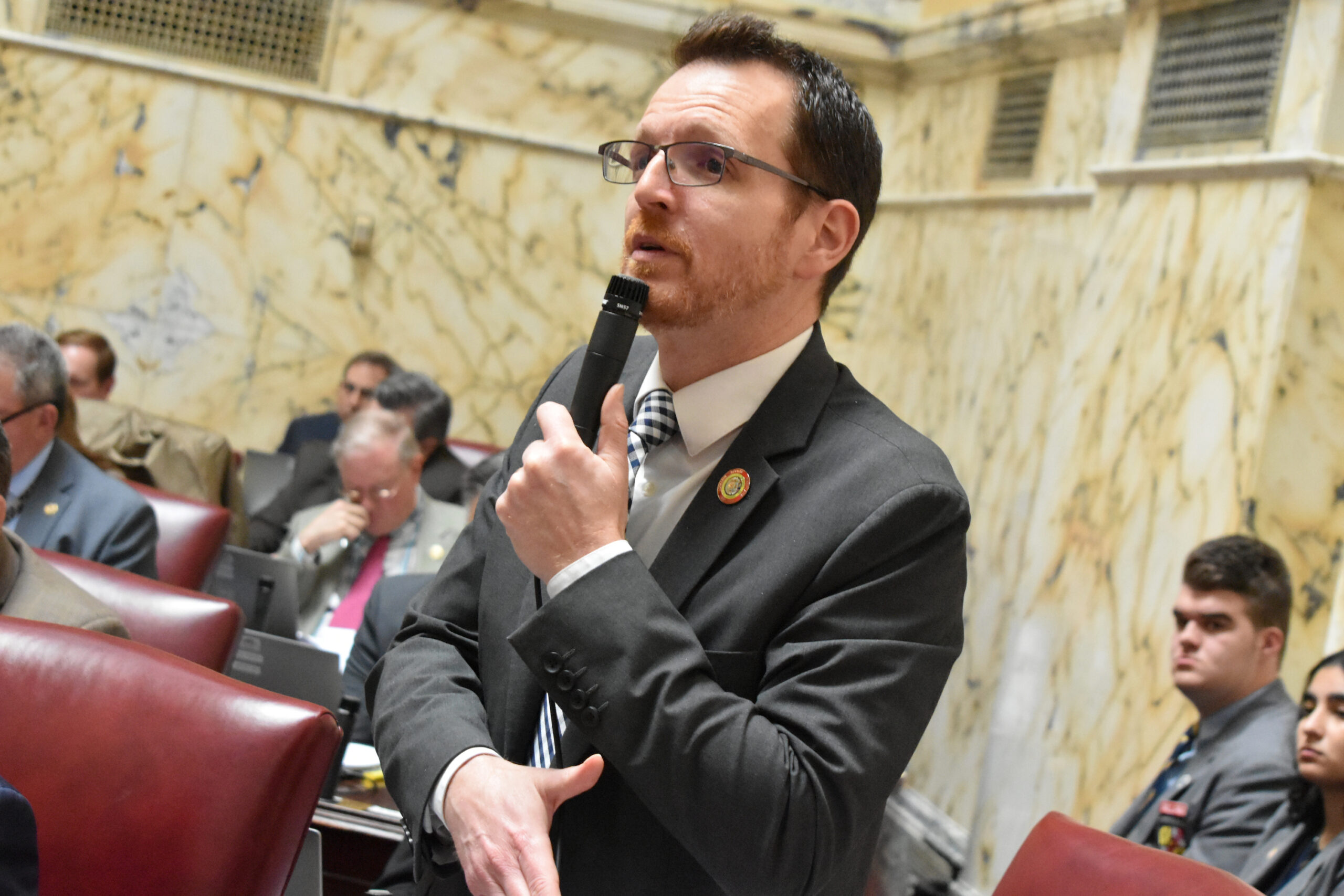Lawmakers Introduce a Bill to Target More Than 200 “Zombie” Water Permits

Following recent pollution violations by a chicken rendering facility operating under an expired discharge permit, lawmakers are introducing a bill that would limit how long the Maryland Department of the Environment can allow facilities to operate under so-called “zombie permits.”
Expired discharge permits sometimes earn the moniker, referring to the period after a permit expires and before a new one is issued. Maryland is currently facing a backlog of more than 200 zombie permits, according to the Department of the Environment.
“Some entities have not had inspections for years, operating continually without oversight,” said Del. Sara Love, (D-Montgomery), the lead sponsor of the bill, told the House Environment and Transportation Committee. The goal of the bill is to ensure that the Department of Environment “gets a handle on zombies,” she continued.
Last year, a plant in Dorchester County that breaks down chicken carcasses for pet food shut down after state inspectors found a slew of pollution violations, including the release of untreated waste and sludge into a stream. The plant was operating on a discharge permit that had expired in 2006, despite federal law requiring discharge permits to be renewed every five years. This raised questions of whether other plants in the state could be running on zombie permits.
House Bill 649, which is sponsored by six other delegates, would prohibit state regulators from extending a discharge permit for more than three years starting this summer, and lowering it to one year starting in 2027.
It would also require the Department of the Environment to conduct monthly inspections at facilities operating under zombie permits or facilities determined to be in noncompliance by the U.S. Environmental Protection Agency.
A permitted facility could face a penalty between $250 and $10,000 if they are in violation of their permit for two consecutive months, under the proposed bill.
Around 70% of facilities with industrial stormwater permits are currently not in compliance with their permit, according to Alice Volpitta, the Baltimore Harbor Waterkeeper. Facilities often fall into noncompliance with their permits because they stop submitting discharge monitoring reports, Volpitta said.
To prevent a more far-reaching harm, Maryland’s environmental regulators should take quick action with facilities that have permit violations, she said.
“This is like ignoring a check engine light in your car for months until you end up pulled over on the side of the road with an engine fire. What could have been a $1,000 fix has now totaled your car — except the stakes are much higher here and we’re gambling with environmental and public health,” Volpitta said.
Betsy Nicholas, the executive director of Waterkeepers Chesapeake — a regional coalition of 19 waterkeepers in the state — said that when they reported violations to the Department of the Environment in the past, action was not taken for months or years. Some facilities are discharging a hundred times more pollutants than the permitted limit, she continued.
Last summer, Blue Water Baltimore, a nonprofit focused on water quality, found high levels of bacteria flowing from two wastewater treatment plants in Baltimore and into the Patapsco River. Blue Water Baltimore and the Department of the Environment have filed separate lawsuits against the two plants for permit violations.
On a five mile strip on Sands Road in South Anne Arundel County, there are five wastewater treatment plants that have not been in compliance with their discharge permits over the last three years and no enforcement action has been taken as of November, according to Steven Waddy, a member of the Anne Arundel County NAACP. He said this road has been the site for gravel mining operations for the last 50 years and complaints to local and state officials have not been adequately addressed.
Robin Clark, an attorney for the Chesapeake Bay Foundation, stressed that zombie permits exacerbate environmental justice concerns because industrial facilities that discharge pollutants are usually clustered in low-income areas.
In a letter of information to lawmakers, Department of Environment Chief of Staff Tyler Abbott wrote that reducing the number of “administratively extended” permits is “a top priority” for Secretary of Environment Ben Grumbles.
Abbott also wrote that the department found “many duplications” in its permit tracking database and plans to resolve that in the next 60 days which may reduce the number of extended permits.
But Love contended that the permits have not been duplicated and said the extra accountability measures in her bill are “really, really needed.”
Love also referenced a recent report by the U.S. Environmental Protection Agency that highlighted a “severe gap” in MDE’s drinking water system program, estimating that the department needs 187% more full-time employees than currently staffed to ensure safe drinking water for Marylanders.
When lawmakers brought this issue up to Grumbles in a public hearing last month, Grumbles pledged to have 102 staff members at the department’s drinking water office as soon as possible. As of last month, the office had 68 full-time positions.
“Our department has the people, plans, and requirements in place to ensure water supplies continue to be safe and protected,” Grumbles said in a statement on Wednesday.
The Department of Environment calculated that it would need to spend $22.8 million in fiscal year 2023 to hire more than 220 more staff, according to the fiscal note on Love’s bill.
She suggested those figures might be inflated. But even so, the agency should be responsible to maintain adequate staffing levels, Love said. “You can’t… wipe out the employees and not have to pay to bring back the employees that we need to ensure that we have clean and safe drinking water — so there will be a cost,” she said.
Sen. Paul Pinsky (D-Prince George’s) and six other senators are sponsoring the bill’s counterpart in the Senate, which will be heard in the Senate Education, Health and Environmental Affairs Committee on Thursday.




 Creative Commons Attribution
Creative Commons Attribution